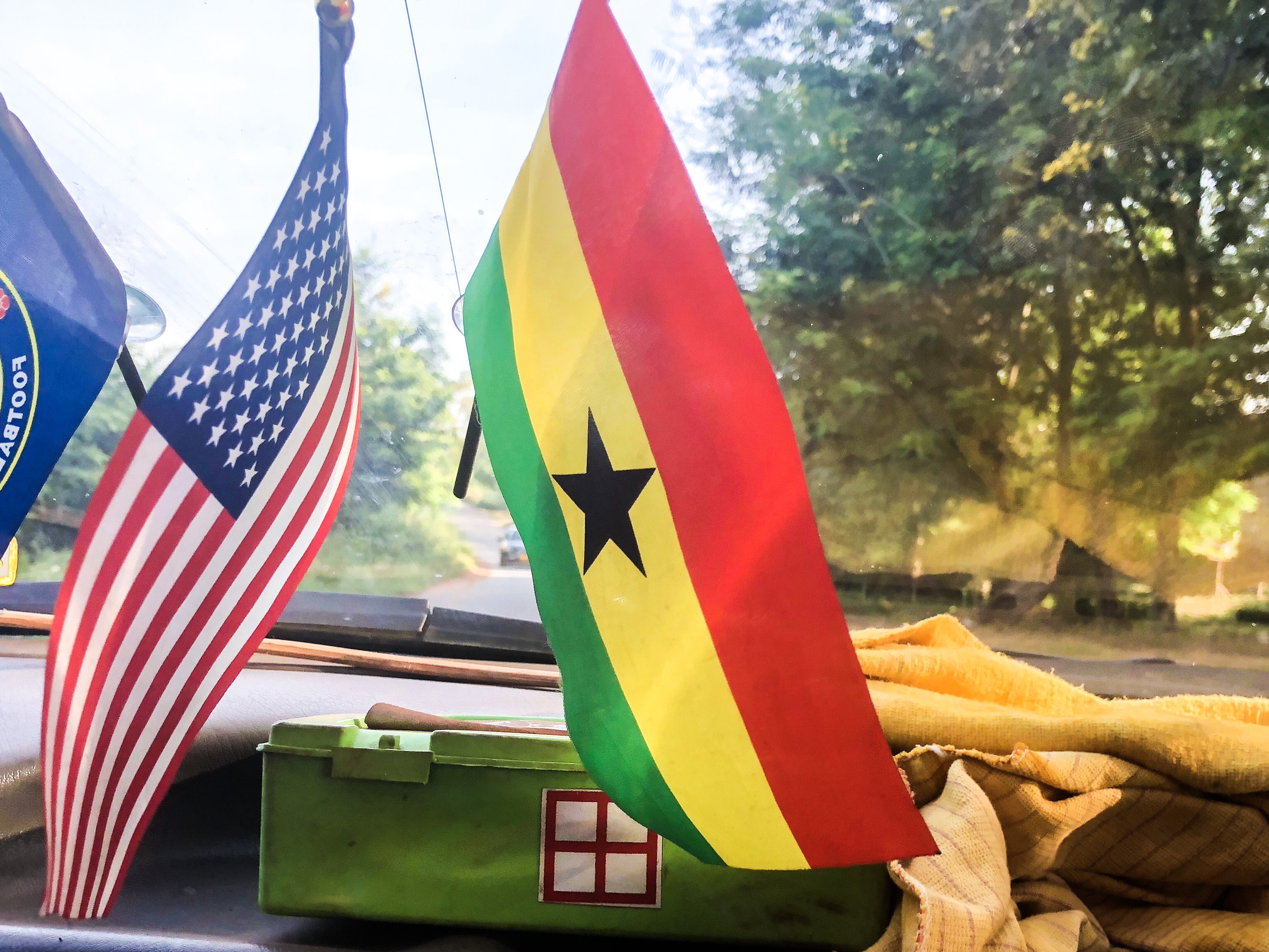It was the first day in almost three months where I hadn’t begun sweating by 10:00am. The clouds were holding back the sun,  the air was dry, and the breeze was active. At first break of the school day, the 4-H club executive team and myself met under the tree in the schoolyard, its exposed roots being a bench in itself. As we discussed the agenda for the upcoming club meeting, the students had their arms folded, sweaters on, and goosebumps present. We laughed together about how they thought it was cold and how I thought the day was finally a comfortable temperature.
the air was dry, and the breeze was active. At first break of the school day, the 4-H club executive team and myself met under the tree in the schoolyard, its exposed roots being a bench in itself. As we discussed the agenda for the upcoming club meeting, the students had their arms folded, sweaters on, and goosebumps present. We laughed together about how they thought it was cold and how I thought the day was finally a comfortable temperature.
We concluded the meeting as I mentioned how some of their hopes for the club were possible, but how I would have to leave Ghana before they could be carried out. One of the students asked how big my suitcase was and added in “I want to go to America.” Giving that student a hard time, I explained that they would be quite uncomfortable in the upper Midwest of the United States if they thought 75 degrees Fahrenheit was chilly in Ghana.
Men have asked me to be their wife, professionals have asked me to help them with graduate programs in the U.S., and children have asked me to take them home with me. All of these actions simply stem from this desire to get out of Ghana. There are many frustrations that have been experienced in Ghana, however, the one that seems to bother me the most is the statement: “I want to go to America.”
This statement bothers me, because some Ghanaians have the perception that America is better than Ghana. I have had multiple conversations with Ghanaians about why this is the case. Every answer involves the fact that Ghanaians see that Americans are rich. They aren’t wrong. Americans are rich when compared to other parts of the world. But the problem is that this impression makes Ghanaians think that America is better. One of my co-teachers explained that, “when a Ghanaian goes to America for work and then returns to Ghana, they are then a rich man.” America may have wealth, but there are beautiful parts of Ghana that America needs to take note on.
Ghanaians are the most friendly and joyful people I have had the pleasure to interact with. When passing someone on the street, when approaching a stand in the market, when arriving anywhere, a greeting is always in order. I have been called out when forgetting to ask someone how they are before asking how much they’re selling the tomatoes for. Ghanaians realize the importance of taking an extra minute to ask how somebody is doing. It is often difficult for me to decipher the conversations that are between strangers and the conversations that are between friends. That’s the best way to express their extent of friendliness.
Those in the United States may think that they can jam out to music, but I assure you that Ghanaians can jam out more on a Sunday morning than Americans can out on the town on a Saturday. I have a theory that all Ghanaians are born with this incredible ability to move their body, and they aren’t timid to show it. The harmonies and rhythms that are made during school worship echo throughout the room, making the heart skip.
 In Ghana, there is pride and care for property. It doesn’t matter how fancy or expensive the property is, it is taken care for. Each morning, the sounds of sweeping fill every home. Bedrooms are swept, sidewalks are swept, driveways are swept, the dirt ground is even swept. Students arrive to school early to sweep the schoolyard so they can collect any rubbish or leaves fallen on the ground. Vehicles are often hand-washed daily, school uniforms are kept pristine, and it’s unlikely to find dirt on shoes or backpacks. People take responsibility for what is theirs, appreciating the things that they have.
In Ghana, there is pride and care for property. It doesn’t matter how fancy or expensive the property is, it is taken care for. Each morning, the sounds of sweeping fill every home. Bedrooms are swept, sidewalks are swept, driveways are swept, the dirt ground is even swept. Students arrive to school early to sweep the schoolyard so they can collect any rubbish or leaves fallen on the ground. Vehicles are often hand-washed daily, school uniforms are kept pristine, and it’s unlikely to find dirt on shoes or backpacks. People take responsibility for what is theirs, appreciating the things that they have.
Ghanaians have this strong sense of caring for those in the community. One day in the market my plastic bag ripped, dropping the oranges on the ground. Without hesitation, multiple people replied with “oh sorry ooo” and rushed to collect the rolling fruit, while another person got me a new bag. Another day, I had tripped walking down some steps and again heard the “oh sorry ooo.” It brings a smile to my face, because of course they weren’t apologizing because they contributed to either of these occurrences, but they simply were sorry that the most minor of incidences happened to me.
These are just a few of my favorite parts about Ghana and its people. I also wish that those Ghanaians looking to leave would realize the beauty of their country and culture. But, it isn’t solely Ghanaians that begin to take what’s surrounding them for granted. Humans have this terrible habit of wanting what they cannot have. Everyone has their “America” in their life. These are the things that we desire due to perceptions that they’re better than what we currently have. What are you missing out on appreciating in your own life? Do not lose sight of the small, but beautiful, parts of your life that you may have become numb to.
As time here moves only faster with each day, I try to take in the smallest moments of my favorite things about Ghana. This country and its people I have come to know have brought me a substantial amount of joy. I already know that after returning to America I will be saying to myself “I want to go back to Ghana.”
Amy Greenberg is an Animal Science graduate from North Dakota State University. Before serving as an AgriCorps Fellow Amy studied abroad in New Zealand.


